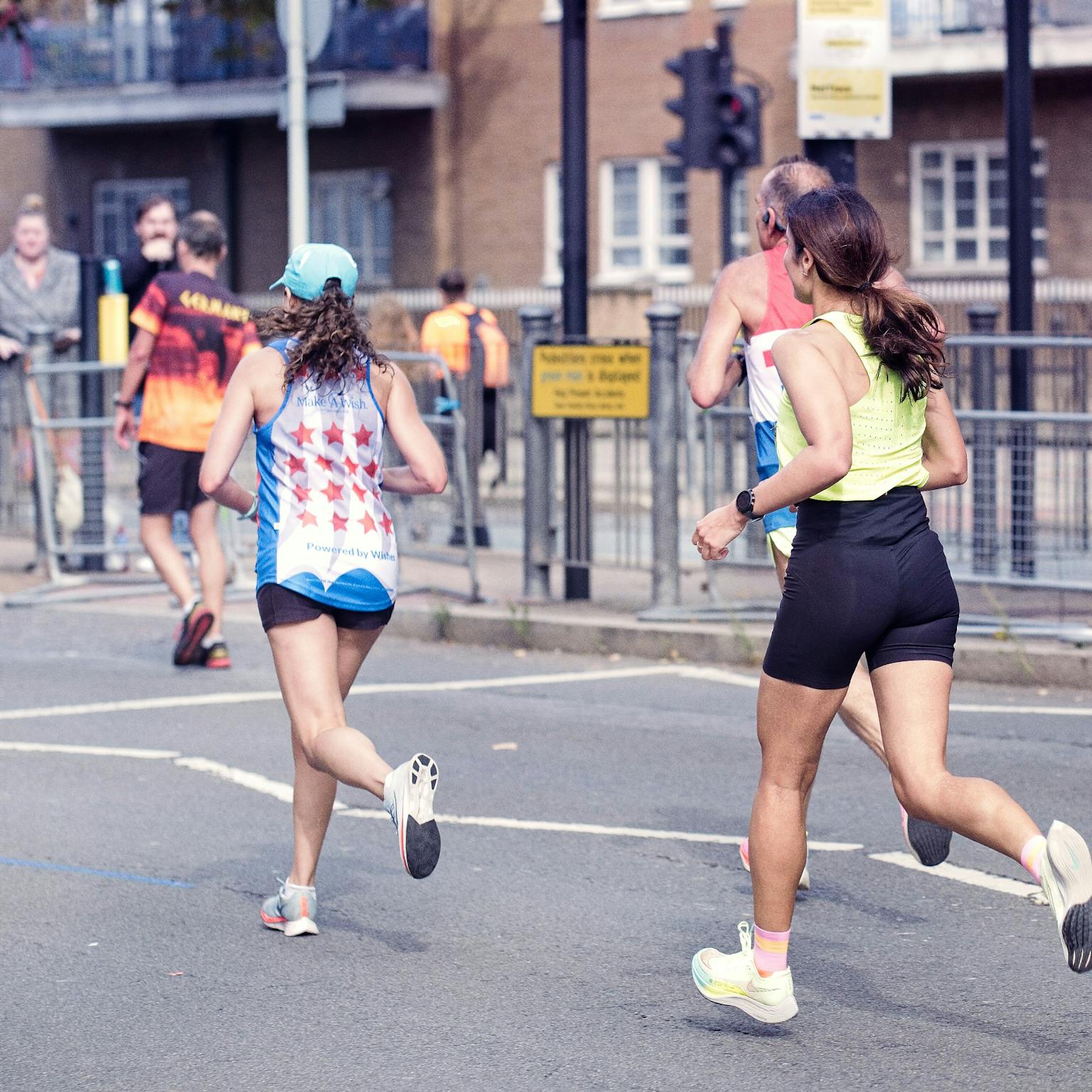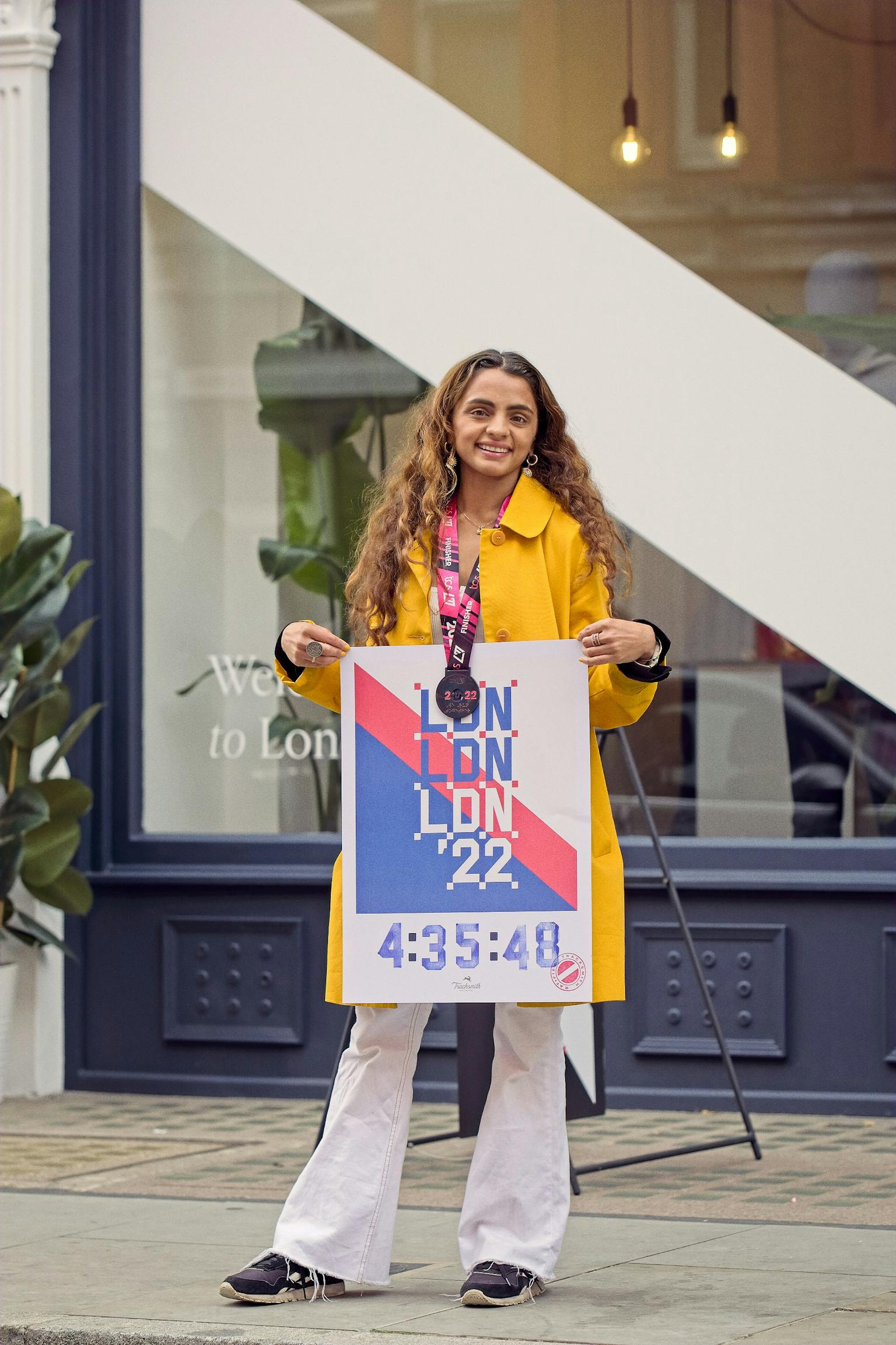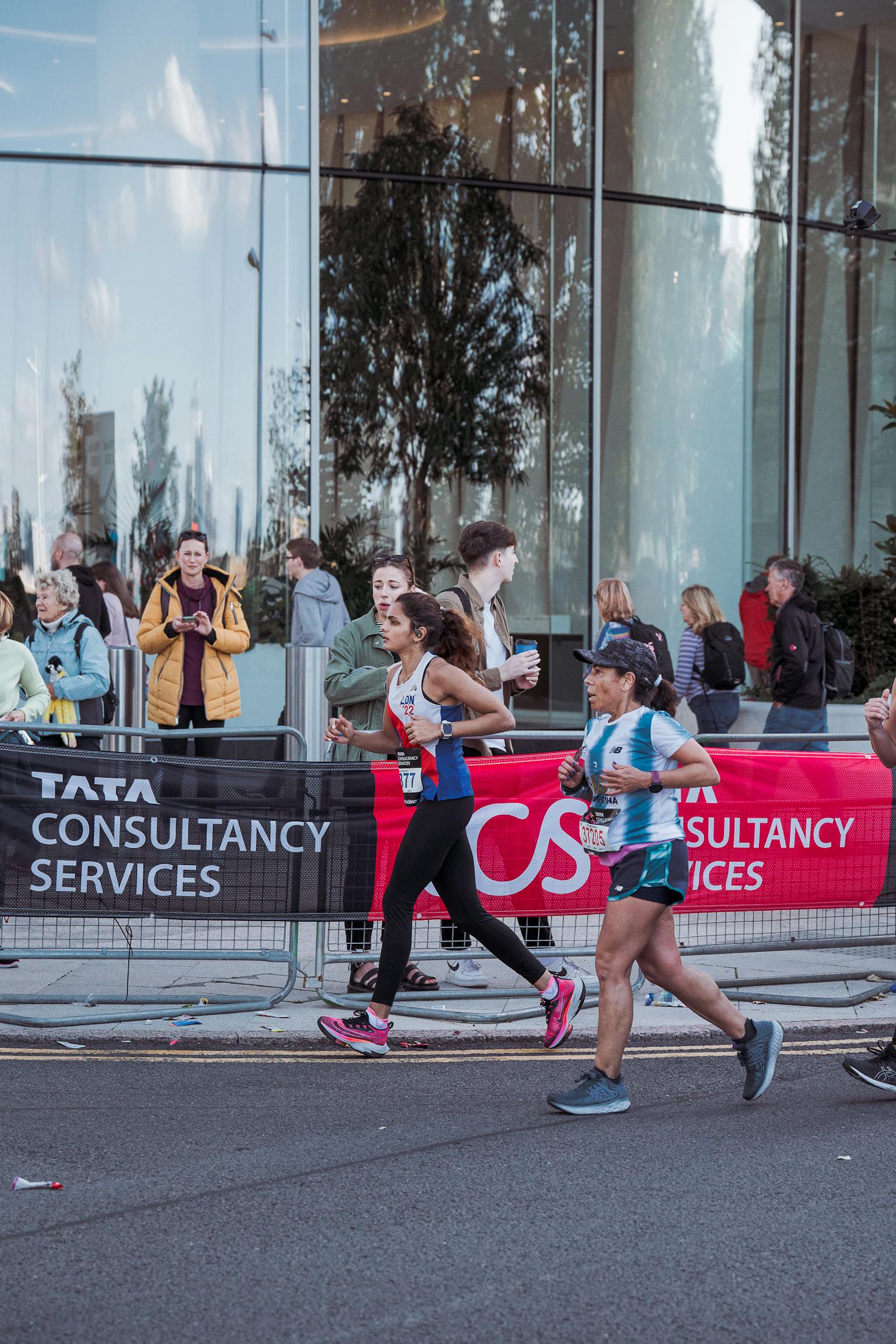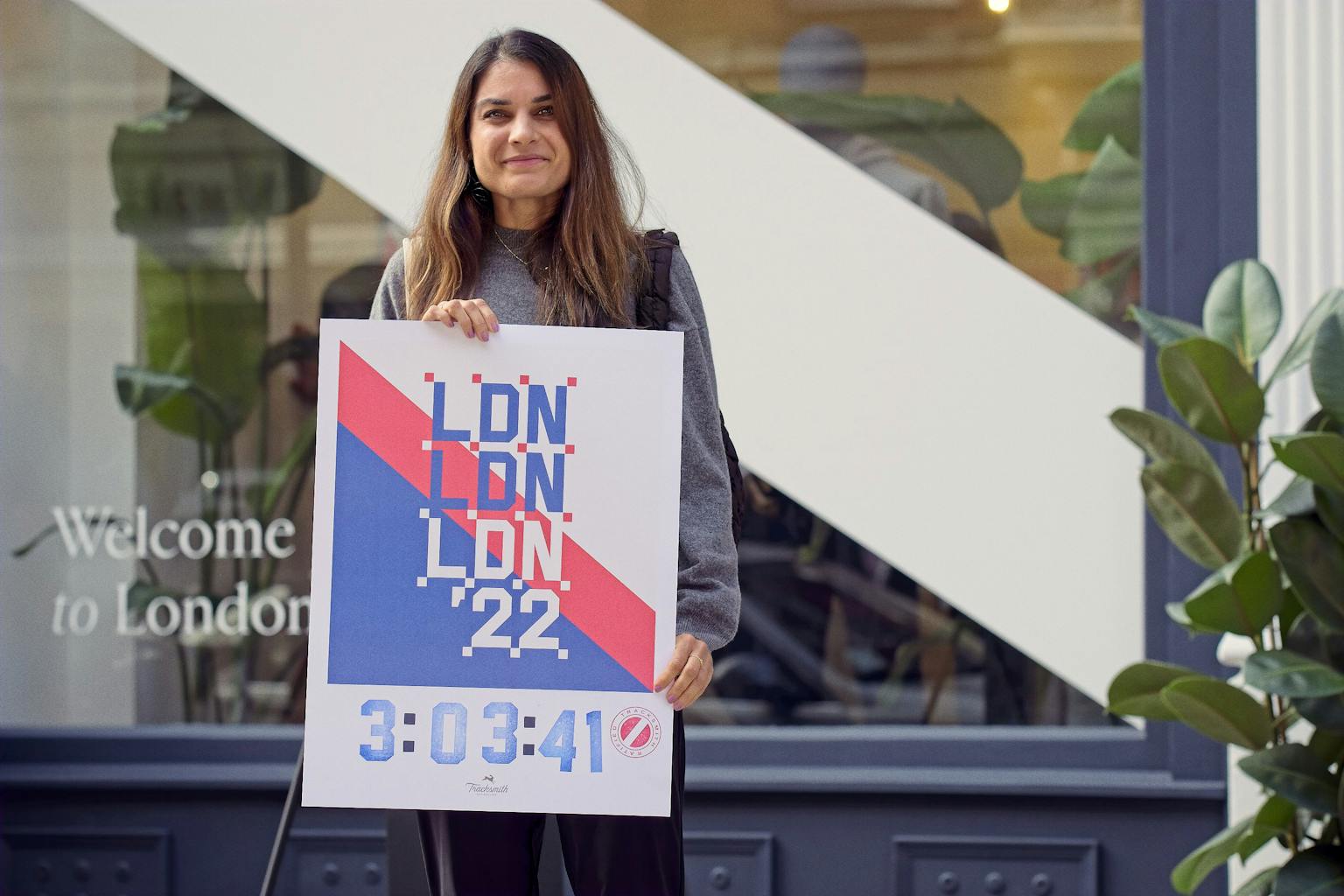If you asked me, “Are you a runner?” I would likely say no.
For me, the word runner does not conjure up a South Asian Muslim woman. And that’s what I am, in addition to being a pupil barrister from London with a passion for several sports from weightlifting to surfing, and now running. Semeena Khan, a certified running coach based in Sussex, is a scrum master in her day-to-day life. Aisha Qamar is a runner from New York who works in public health and has run eight marathons. What we all have in common is our affection for running, but we are also all South Asian, Muslim women. We discovered our love of running through different routes: I decided to run a half marathon earlier this year with a group of friends in memory of a friend we lost. Semeena came to running through a Couch-to-5k plan in 2016, which progressed into racing marathons, followed by co-founding the Sudhan Welfare Society CIC (SWS) to tackle inequalities in activity levels in the South Asian community. Aisha’s journey began with a modest invitation to run locally with a friend, which turned into running the New York Marathon and then several others, including Boston.
There’s little precedent for the routes we’ve taken to arrive at the London Marathon. I decided to run because as a newcomer to the sport, I want to highlight the idea that running really is for all of us. To continue showing up and to exemplify that no matter how much you think you don’t fit in, you do. There is absolutely no mould that fits all runners. Throughout our journeys, all three of us have felt out of place in the running community; growing up in South Asian households, the focus was on education rather than sport. Although our families are highly supportive of us pursuing athletics, this is not the case for all South Asian Muslim women. We have all noticed as we began to run that we did not see many who looked like us. Aisha points out, “Over the past few years, that has changed, and I feel really grateful to have connected with other women through social media and in person.” However, that is not to diminish that every time we have turned up, knowing we stood out came with unease but also a sense of immenseness to represent our community positively.
“I’m often the only, or one of the few South Asians at races,” says Semeena. That is a feeling I can concur with. In almost any sport I have done, including running, I am part of a minority of South Asian Muslim female faces. However, we all have one thing in common: we keep showing up. The only way to encourage more women like ourselves to become a part of this sport, is to turn up week after week. “We belong in the running world no matter our race, color or faith,” says Semeena, who leads programs to develop a community for Muslim women of all ages to come together and be active in West Sussex, UK. As an ASICS Frontrunner she represents South Asian Muslim women, a minority of runners who aren’t usually at the forefront of this sport and helps lead run clubs in London. As you move through this sport, or any sport for that matter you come to realise that it’s your continuous presence that is more likely to encourage others to join, rather than the need for excellence.
“Sometimes it's as simple as, ‘I got out for a run today,’ says Aisha. It's these small acts of movements and the ability to do, that allows you to build the confidence to feel like you too are a part of this community. For Aisha, the pandemic reinforced what mattered most about running: the community. She wants to keep running and continue to actively seek out more Muslim women with whom she can share her passion for running, whether that’d be through groups or connecting with individuals. “It means so much to connect with someone around our spirituality and religion, as well as around running,” she says. As we all become engrossed in the sport, we agree that we have a sense of responsibility as one of the few South Asian Muslim women present. This sense of duty of course pushes us to do better, but hopefully can encourage others who see us turn up every time with diligence to participate too.
As we log more miles, and run more races, and share the roads and trails with our teammates, we have all fallen in love with the running community. There are some great groups that help support South Asian Muslim women feel more comfortable in running. An example being @muslim.runners which allows Muslim runners, and Muslim women to connect with each other and support one another in their running journeys. In the USA, Muslimah’s Endure and in the UK, the Asra Club are also examples of communities that create safe spaces for Muslim women to come together and be active. Tracksmith’s weekly long runs in London have been another safe space that welcomes people from all backgrounds and abilities. Personally, these group long runs have allowed me to feel involved in the running community: one that I previously felt alien to because of the lack of similarities I saw between myself and the archetypal runner. It is the presence of such groups which allows Muslim women to feel included here, one that can come across as quite intimidating to an outsider.
A lot of barriers still exist: suitable running gear, training regimes and consideration of amending training schedules during specific periods such as Ramadan, where we fast from eating and drinking from sunrise to sunset. Yes, we are all running the London Marathon this year but will not be able to do so next year or the years to follow, as it will fall within the month of Ramadan. A month where for us it is important to shift the focus away from the outside world towards our inner selves and feel close to our religion, in a way that's not quite possible in the bustle of everyday life.
As much as South Asian Muslim women can act to represent themselves in the running community, the responsibility to make this sport more inclusive and diverse is on everyone. Aisha recognises that the responsibility also falls on men: “They also need to do more and to do better in creating safer spaces,” she says. And as she elaborates, that atleast on the most “basic level, by being vocally supportive of Muslim women in the sport”. In addition to men, I look at the impact of brands when they put women like us at the forefront. When their advertisements include marketing where we feel seen, it allows us to feel like we too are runners, that those clothes are made for us, that this sport is made for us. Yet despite seeing some DEI efforts across different brands, it’s not enough. “There is a significant lack of representation of South Asians in running,” says Semeena. “And especially for women.”
I ran the London Marathon with a group of runners from Pakistan, USA and the UK, raising funds for Pakistan’s flood relief for The Citizens Foundation. Out of the nine runners, three are women. The two other women are decorated athletes from Pakistan. There is great ability and interest in this sport from South Asian Muslim women, it just needs attention, which it has not yet received.



